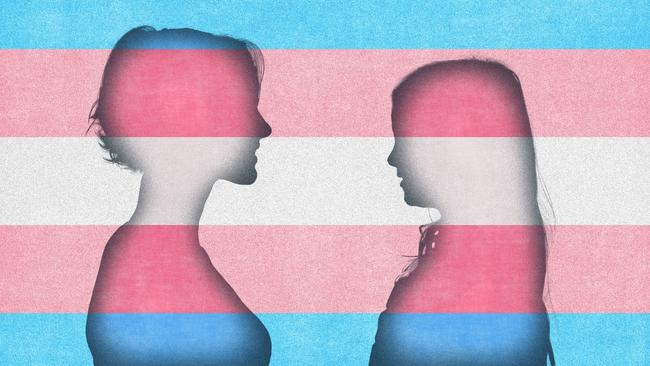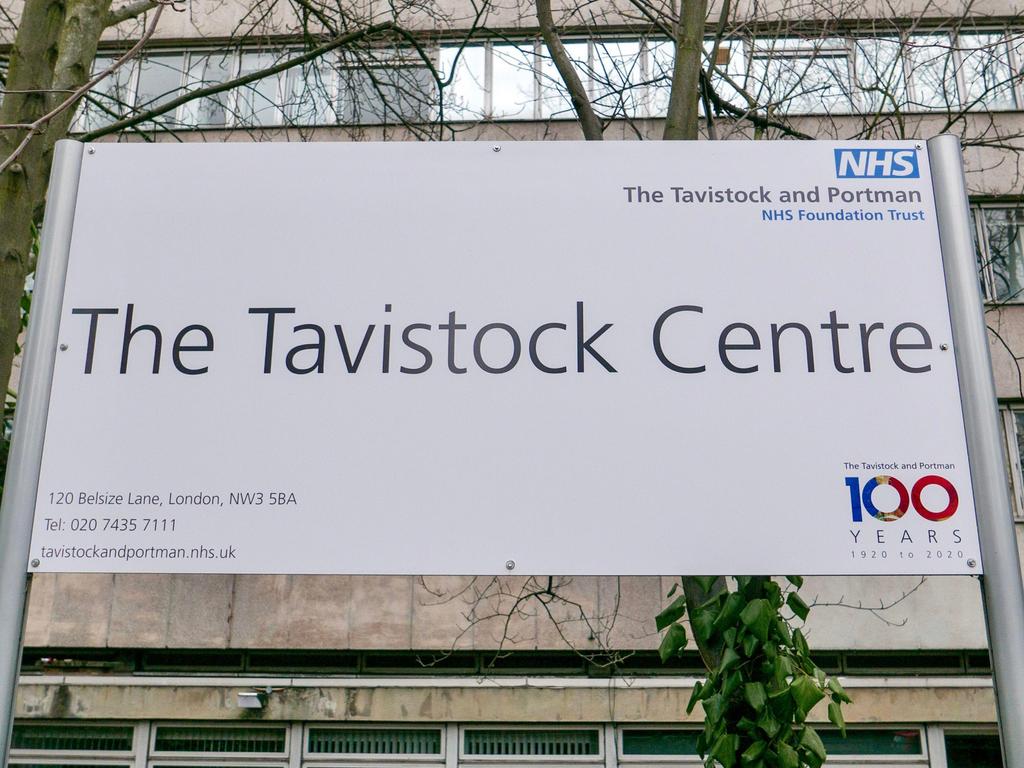The trans ‘lab leak’ that unleashed a scandalous medical experiment

Hiding behind the euphemism of gender-affirming care, the clinicians and activists quoted in the statement would have us believe the medical scandal documented by British pediatrician Hilary Cass is simply not relevant here in Australia. Yet it is, of course. Same hormonal drugs likely to sterilise minors and rob them of sexual pleasure as adults, same low-quality evidence base, same zealous affirmation of gender as the cause of distress.
Teenagers turn up at gender clinics primed with the diagnostic checklist for gender dysphoria, but the true causes of their unhappiness may lie elsewhere. Maybe undiagnosed autism, awkward same-sex attraction, mental health disorders, past sex abuse or just the unsurprising confusion of teenage brains exposed to a pseudoscientific celebrity culture of gender diversity.
Cass can’t pull the plug on social media, but the final report she released this week should be enough to shut down blockers and hormones as routine treatment for gender-distressed minors in England. More cautious, less medicalised treatment policies already have been adopted in Finland and Sweden; in the US, almost half the states – those run by Republicans – have restricted hormonal and surgical interventions for minors.

Elsewhere in what we call the developed world, ideologically qualified gender clinicians carry on regardless, affirming the latest disembodied gender identity of a troubled teenager and doing what can be done to create an opposite-sex facsimile with drugs and surgery. In Australia, private surgeons have performed double mastectomies on girls as young as 15 who imagine they can identify out of being female. Our federal and state governments still appear locked in uncritical expansion of gender-affirming medicine as if it were lifesaving. Cass is not the first to point out that the evidence to justify the “transition or suicide” campaign simply isn’t there.
So, how did we end up here?
It has been likened to a lab leak. Cass explains: “Based on a single Dutch study, which suggested that puberty blockers may improve psychological wellbeing for a narrowly defined group of children with (gender dysphoria), the practice spread at pace to other countries.” This “Dutch protocol” of not-too-early puberty blockers, followed by cross-sex hormones and surgery, entered the scientific literature not long before a troubling shift in the culture.
Around 2010-15, when teenagers began to spend more time home on social media and less time in the rough and tumble of life outside, clinics started to witness an unprecedented explosion of would-be gender patients.
Before, the classic patient was one of the few males whose early childhood distress had not been resolved by time and normal development. Now, the typical profile internationally is a teenage girl with plenty of other problems but no early history of rejecting her birth sex. And now puberty, with its yuck factor, can be stopped – just like hitting a pause button – and there’s time to explore cool gender identities. In melodramatic mode, activists even speak of “the wrong puberty” as inflicting irreversible harm.
But weaknesses in the Dutch research have become more obvious with time, and it isn’t clear if the claimed mental health benefits even apply to today’s very different patient group starting puberty blockers as young as ages eight to 12. In reality, blockers seem not a pause but the first step on a potentially lifelong medical path; international data suggests almost all those begun on blockers will go on to cross-sex hormones.
How can such young children consent to trading away future rights to having a family and sexual fulfilment for what may be short-run satisfaction with a new, unstable identity?
If you read the Cass report, you will note her surprise that gender medicine is not like any other medicine. Powerful drugs were introduced as routine treatment for children before any good evidence of their risk-benefit ratio or long-term effects. Puberty blockers are approved for hormone-dependent cancers, endometriosis and precocious (or premature) puberty. Their use with gender dysphoria is off-label. Children’s hospitals across the world, including Australia, skipped clinical trials, offered gender-affirming care as the gold standard and only later launched research projects to get the missing data on safety and efficacy. Definitive results are years away.
Meanwhile, some European health authorities were worried enough to order a systematic review of the evidence base.
This is considered the best way to gauge the quality of research said to justify a treatment; the method for searching the scientific literature and rating the studies is upfront, alert for bias and repeatable by sceptics. Since 2019, there have been systematic reviews of the evidence for hormonal treatment of gender-distressed minors in Finland, Sweden, England, Germany and Florida. Cass had another done. Each of these reviews, undertaken independently, has concluded that the evidence base is very weak and uncertain, especially for puberty blockers, the effects of which on the adolescent brain are unknown.
How did reputable hospitals come to allow experimental treatment of children? Like the rest of us, the medical profession swims in the same cultural soup where trans rights are human rights and gender medicalisation is somehow progressive; scepticism is career-ending transphobia. Many otherwise thoughtful people have not thought to check the sources for alarming predictions that 50 per cent or so of trans youth will attempt suicide if they don’t get gender-affirming care.
And from health ministers down to hospital managers, those worried about medicalisation of children have drawn comfort from the reassuring claim that all treatment strictly follows recognised guidelines. These clinical guidelines play an outsize role in gender medicine precisely because good quality evidence is absent. Systematic reviews sit at the top of the evidence pyramid; guidelines and other forms of bias-prone expert opinion are at the bottom.
Two of the three guidelines invoked in Australia are relied on by the health sector in many countries. These come from the World Professional Association for Transgender Health and the Endocrine Society. The third, issued by the Royal Children’s Hospital Melbourne (RCH), has been the vehicle for importing and entrenching the gender-affirming model in Australia. Cass had these gender dysphoria guidelines independently evaluated. Only Finland’s and Sweden’s survived scrutiny. On the key measure of the rigour of their development, Sweden’s scored 71 per cent; RCH was rated at 19 per cent. This is the document that persuaded our Family Court judges to wind back their supervision of treatment decisions involving minors.
The RCH guideline, which argues that psychosis in a child should not necessarily prevent medicalised gender change, drew heavily on those from WPATH and the Endocrine Society.
The most recent WPATH guideline, which introduced to the world a new eunuch gender identity calling for “medically necessary” castration, cites an RCH paper to bolster its evidence claims.
In fact, that 2019 paper contains no evidence but merely describes the hospital’s belated research project, Trans20, which disarmingly admits the “urgent need for more evidence”.
Cass notes this circularity whereby low-quality gender-affirming guidelines reference one another, creating “an apparent consensus on key areas of practice despite the evidence being poor”.
Meagre evidence, no real consensus among clinicians and a risk of lifelong harm to children. If this isn’t enough to prod our politicians towards a national inquiry, they may find it harder to ignore the negligence lawyers and medical indemnity insurers.
Bernard Lane, a former journalist with The Australian, writes the newsletter genderclinicnews.com.







Equality Australia, a transgender activist lobby, issued a curious media statement this week deploring England’s Cass review into the medicalisation of distressed minors alienated from their birth sex. The statement ran to almost 900 words, but none could be spared to spell out puberty blockers or synthetic cross-sex hormones.